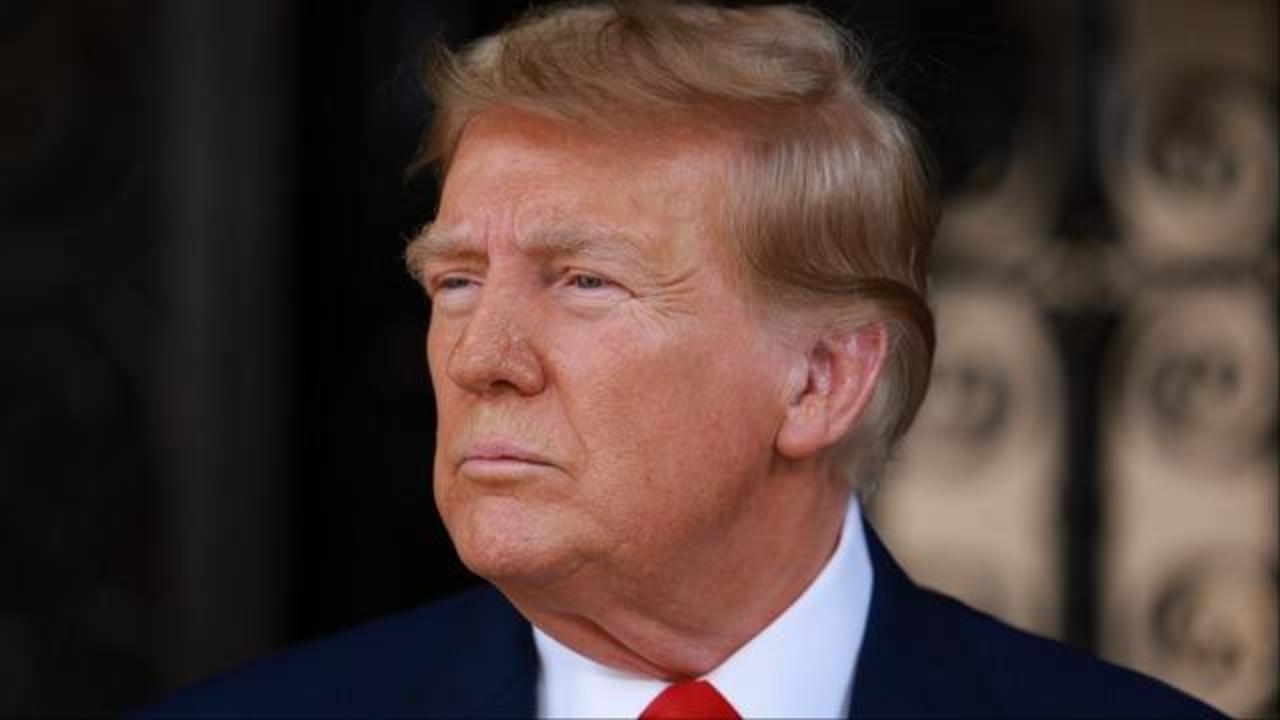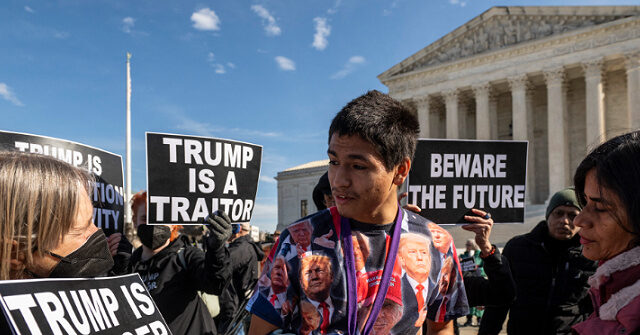Former President Donald Trump seems poised for a significant win in the Supreme Court regarding the Colorado case on his eligibility for the 2024 ballot. This expectation follows a rough outing for the lawyers opposing him, as observed during Thursday’s proceedings with the justices.
The Colorado Supreme Court, with a narrow 4-3 vote, sided with Colorado Secretary of State Jena Griswold. It concluded that Trump’s involvement in the insurrection disqualified him from running for president in 2024, under Section 3 of the Fourteenth Amendment.
Trump’s legal team refuted the insurrection allegation and raised various issues in their appeal. These included questioning whether Section 3 applies to presidential candidates, the necessity of Congress passing a law for disqualification, the authority of states in making such determinations, and concerns over due process in Colorado.

Donald Trump (Credits: CBS News)
It appears evident that Trump is on the brink of a substantial victory, possibly with an overwhelming 8-1 or unanimous 9-0 decision. Such a verdict could potentially bolster his standing in the polls as the presidential election gears up.
One notable aspect that several justices seemed to concur on is the distinction between the president and officers of the United States. They highlighted that the president, unlike federal officers, is not categorized under this term in the Constitution.
During the proceedings, Justice Clarence Thomas raised questions about historical instances where state officials or courts declared national candidates ineligible for the ballot, which the opposing counsel couldn’t address.
Justice Brett Kavanaugh emphasized historical precedent and legal understanding, suggesting that Chief Justice Chase’s opinion in 1869 influenced the dormant nature of such state authority. Kavanaugh also noted that Trump had never been charged or convicted of the referenced insurrection crime.
Justice Elena Kagan expressed concerns about allowing a single state to influence the outcome of a presidential election, stressing the national implications of such decisions.
Justice Neil Gorsuch scrutinized the notion that Section 3 immediately disqualifies individuals upon certain events, highlighting potential ramifications on the presidency’s authority.
Justice Ketanji Brown Jackson questioned why the term “president” was not explicitly listed among the positions barred under Section 3, raising doubts about the legislative intent.
Justice Amy Coney Barrett raised concerns about the lack of due process in the proceedings that led to Trump’s invalidation.
The article speculates on Chief Justice Roberts potentially assigning the opinion-writing responsibility, which could affect perceptions of the decision’s partisanship. However, it concludes that regardless of the assignee, the case is no longer urgent, allowing the justices to craft a thorough and enduring opinion before the term concludes in June.
The case in question is Trump v. Anderson, No. 23-719, in the Supreme Court of the United States.























